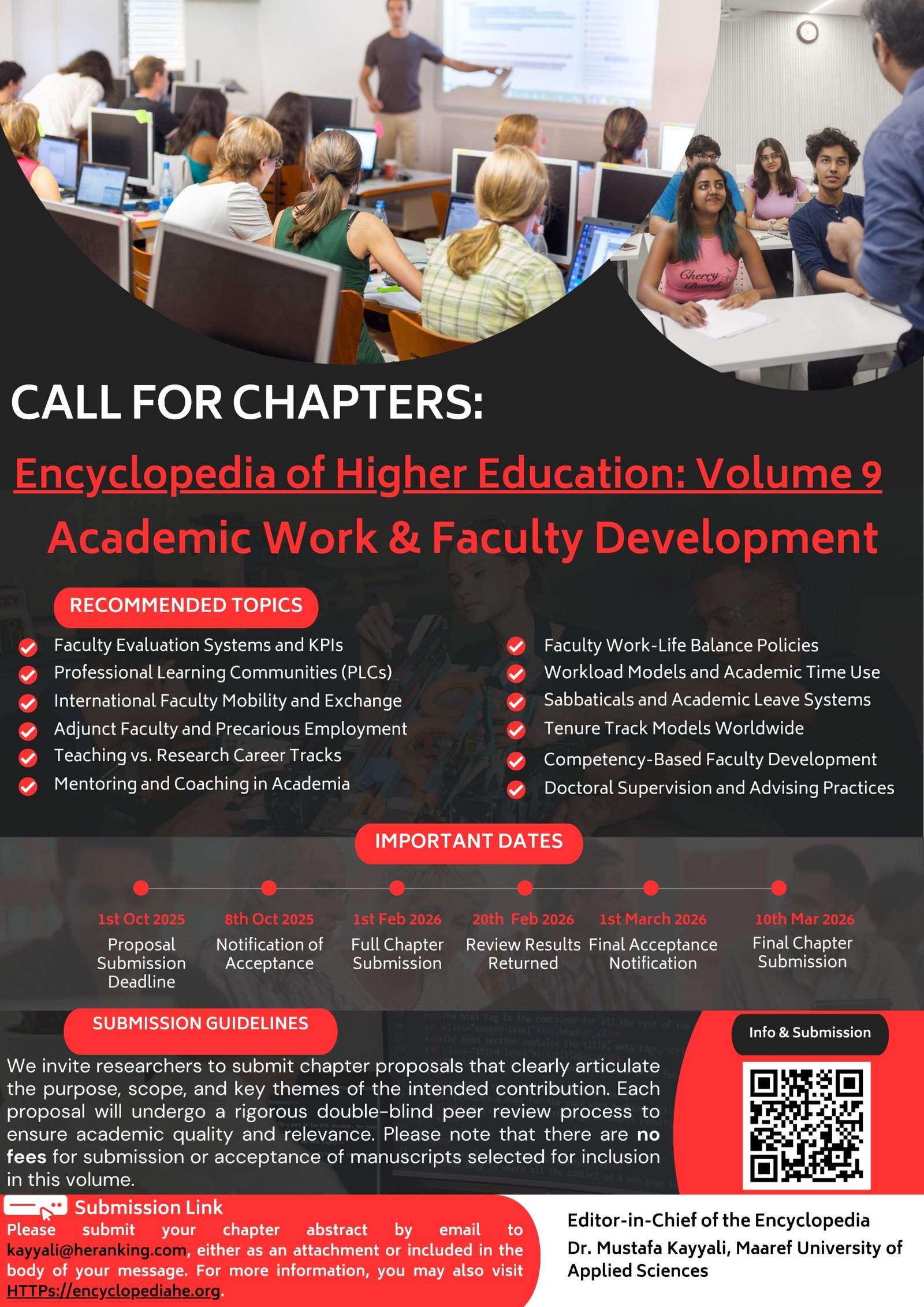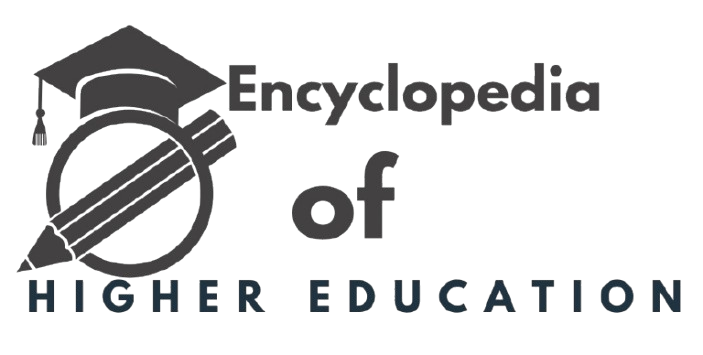Volume 9. Academic Work and Faculty Development
Overview
This volume delves into the evolving roles, responsibilities, and realities of academic professionals within contemporary higher education systems. From tenure and promotion frameworks to precarious employment, it examines how faculty work is shaped by institutional expectations, national policy environments, and global academic labor markets. Topics such as mentorship, workload models, cross-disciplinary appointments, international mobility, and inclusive hiring are explored alongside pressing challenges like academic freedom, unionization, and the ethics of performance metrics. The volume also sheds light on how digital transformation, research commercialization, and institutional governance are redefining the academic profession. Emphasizing holistic faculty development, this volume highlights professional learning communities, leadership pathways, sabbatical systems, and strategies for sustaining academic wellbeing and innovation.
Importance and Impact
Faculty are the intellectual backbone of higher education. Yet, they often face mounting pressures—from publish-or-perish cultures to administrative burdens and political interference. This volume underscores the need to rethink academic work as a dynamic, developmental, and ethically grounded practice. By highlighting global models of faculty development, equitable evaluation systems, and supportive career environments, it equips institutions with tools to foster both excellence and sustainability. The future of teaching, research, and community engagement relies on empowering faculty as thought leaders, collaborators, and changemakers. As higher education redefines its mission amid rapid change, investing in academic labor is not optional—it is essential.
Submission Guidelines
Word Count: 5,000 to 6,000 words
Each chapter should be between 5,000 and 6,000 words, including references. This length allows contributors to develop their argument with sufficient depth while remaining accessible to a global readership.
Language: English
All submissions must be written in clear, academic English. Contributors are encouraged to use inclusive language and ensure clarity for an international audience.
Citation Style: APA (7th edition preferred)
Please follow APA Style, 7th edition, for all in-text citations, reference lists, headings, and formatting. Consistency in referencing ensures academic integrity and ease of cross-referencing.
References: At least 80% published after 2021
To ensure the relevance and timeliness of each chapter, at least 80% of cited sources should be published from 2021 onward. This helps maintain the encyclopedia’s credibility and reflects current research and policy discussions.
File Format: Microsoft Word (.docx)
Submissions must be uploaded in Microsoft Word format (.docx only). This format allows for easier editing, formatting, and review throughout the publication process.
Interested in Contributing?
Researchers and authors who wish to participate in the Encyclopedia of Higher Education project are invited to send their abstract, chapter idea, or full submission directly to: kayyali@heranking.com
Alternatively, you may fill out the following form to express your interest and submit your proposal.

Recommended Topics for Contribution
Authors are welcome to explore any of the following themes—or propose their own original focus aligned with the volume’s scope:
1- Faculty Evaluation Systems and KPIs
2- Professional Learning Communities (PLCs)
3- International Faculty Mobility and Exchange
4- Adjunct Faculty and Precarious Employment
5- Teaching vs. Research Career Tracks
6- Mentoring and Coaching in Academia
7- Faculty Work-Life Balance Policies
8- Workload Models and Academic Time Use
9- Sabbaticals and Academic Leave Systems
10- Tenure Track Models Worldwide
11- Competency-Based Faculty Development
12- Doctoral Supervision and Advising Practices
13- Inclusive Hiring and Promotion Practices
14- Faculty Roles in Governance
15- Academic Freedom and Political Pressures
16- Global Trends in Adjunctification
17- Ethics of Faculty Evaluation and Promotion
18- Academic Labor Market Supply and Demand
19- Dual Appointments and Cross-Institutional Roles
20- Institutional Support for Grant Writing
21- Faculty Retention in Resource-Constrained Contexts
22- Digital Scholarship and New Faculty Roles
23- Interdisciplinary Faculty Roles and Recognition
24- Sabbatical Models and Innovation Impact
25- Political Pressures on Academic Expression
26- Academic Leadership Development Programs
27- Faculty Inclusion in Strategic Planning
28- Ethics of International Faculty Recruitment
29- Role of Unions in Faculty Development
30- Gender Equity in Tenure and Leadership
